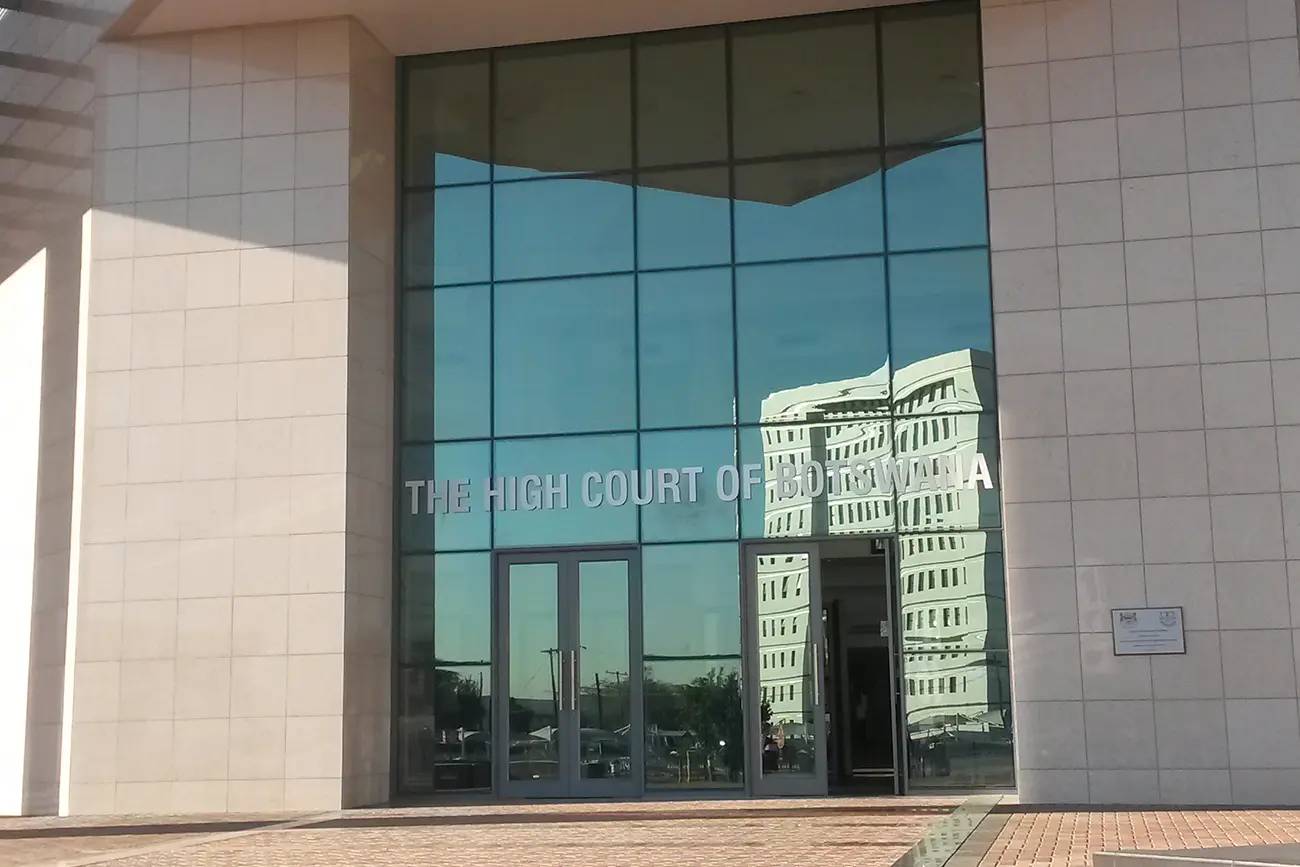
On 16 January 2017, the Botswana Court of Appeal heard the case of Law Society of Botswana and Omphemetse Motumise v President of Botswana, Judicial Service Commission and Attorney General (CACGB-031-16). Judgment was handed down on 19 April 2017.
In 2015, the Law Society of Botswana and Mr Motumise brought an application against the President of Botswana and the Judicial Service Commission following the latter’s recommendation to appoint Mr Motumise as a judge and the President’s refusal to do so. The Law Society submitted that the constitutional provision which deals with the appointment of judges requires the President to act in accordance with the advice of the Judicial Service Commission.
The Court of Appeal considered two issues: 1) The nature and extent of the power conferred upon the President under section 96(2) of the Constitution in the process of appointment of a judge of the High Court; and 2) Whether the courts have a power to prescribe to the Judicial Service Commission the manner and way in which it should carry out its constitutional mandate, focusing on the extent to which interviews of the candidates and the outcome of deliberations should be made public. The Court of Appeal held that the President’s decision to refuse to appoint Mr Motumise was reviewable.
The first question before the court generated a robust debate within the Court of Appeal and resulted in four distinct judgments by Lesetedi JA (with Brand JA concurring), Gaongalelwe JA, Lord Abernethy JA and Lord Hamilton JA.
Section 96(2) of the Constitution provides that the “judges of the High Court shall be appointed by the President, acting in accordance with the advice of the Judicial Service Commission”. Lord Hamilton JA argued that section 96(2) of the Constitution only gives formal powers to the President and that it was always intended that he should follow the recommendation of the Judicial Service Commission. He submitted that this was illustrated by the discussions during the constitution-making process that led up to Botswana’s independence Constitution in 1966 which envisaged moving away from the executive appointing judges. According to Lord Hamilton, “in constitutional law, including in the appointment of judges, the expression ‘acting in accordance with the advice’ has, in my view, a settled meaning. It means that the person advised must follow the advice given and act upon it.” Lord Abernethy JA concurred with this interpretation and emphasised that it is important to look at the purpose of this framing, which is consistent with the separation of powers: “Since much of the work of the courts is concerned with disputes in which the executive is involved in one capacity or another, it is obvious that the rule of law may be at risk if the executive is not separated so far as reasonably practicable from the judiciary. Equally obviously this could extend to any substantive part the executive might play in judicial appointments.” Gaongalelwe JA submitted to the contrary that there is no universally accepted meaning attributed to the phrase ‘acting in accordance with the advice’ and that there is no mention in legislation of the Judicial Service Commission’s appointment powers.
Lesetedi JA made short shrift of the arguments of the State around the prerogative powers of the President, stating that once the powers were set out in legislation, in this case the Constitution, they were no longer prerogative powers. Lesetedi JA further found a more cautious middle way in the interpretation of section 96(2) by focusing on the role of the Judicial Service Commission: “The members of the Judicial Service Commission must bring to bear the interests and perspectives of their constituents in any evaluation of a candidate for appointment while at the same time exercising an open mind and deliberate judgment thereafter to consider all factors and reach an informed and unbiased evaluation of the suitability of a candidate.” With this interpretation in mind, Lesetedi JA held that the inclusion of the Attorney General in the Judicial Service Commission provided an opportunity for the President to give input through the Attorney General into the appointment process. As such, it was argued that it would only be under very rare circumstances that the President ought to be able to refuse to appoint someone recommended by the Judicial Service Commission since “by the time a recommendation is made to the President his views on the candidate would have been well considered by the Judicial Service Commission”. Lesetedi JA concludes that “in the circumstances, the President was not entitled to turn down the recommendation of the Judicial Service Commission as his role other than as set out above was to act in accordance with the Judicial Service Commission”. The President’s refusal to appoint Mr Motumise as a judge of the High Court was accordingly set aside.
The second question was answered in the negative by both the High Court and Court of Appeal. The Law Society sought guidance from the court on the procedures followed by the Judicial Service Commission during the appointment process. The Law Society submitted that these procedures ought to be transparent, including that Judicial Service Commission interviews be held in public and that the outcome of the deliberations be made public.The Court of Appeal judges concurred that the court had no power to intervene in the decisions of the Judicial Service Commission on how it regulates its own procedures. Lesetedi JA however noted that this is not a closed issue and that the “question whether or not conducting interviews for judicial appointment should be carried out in the open is one of public debate”.



